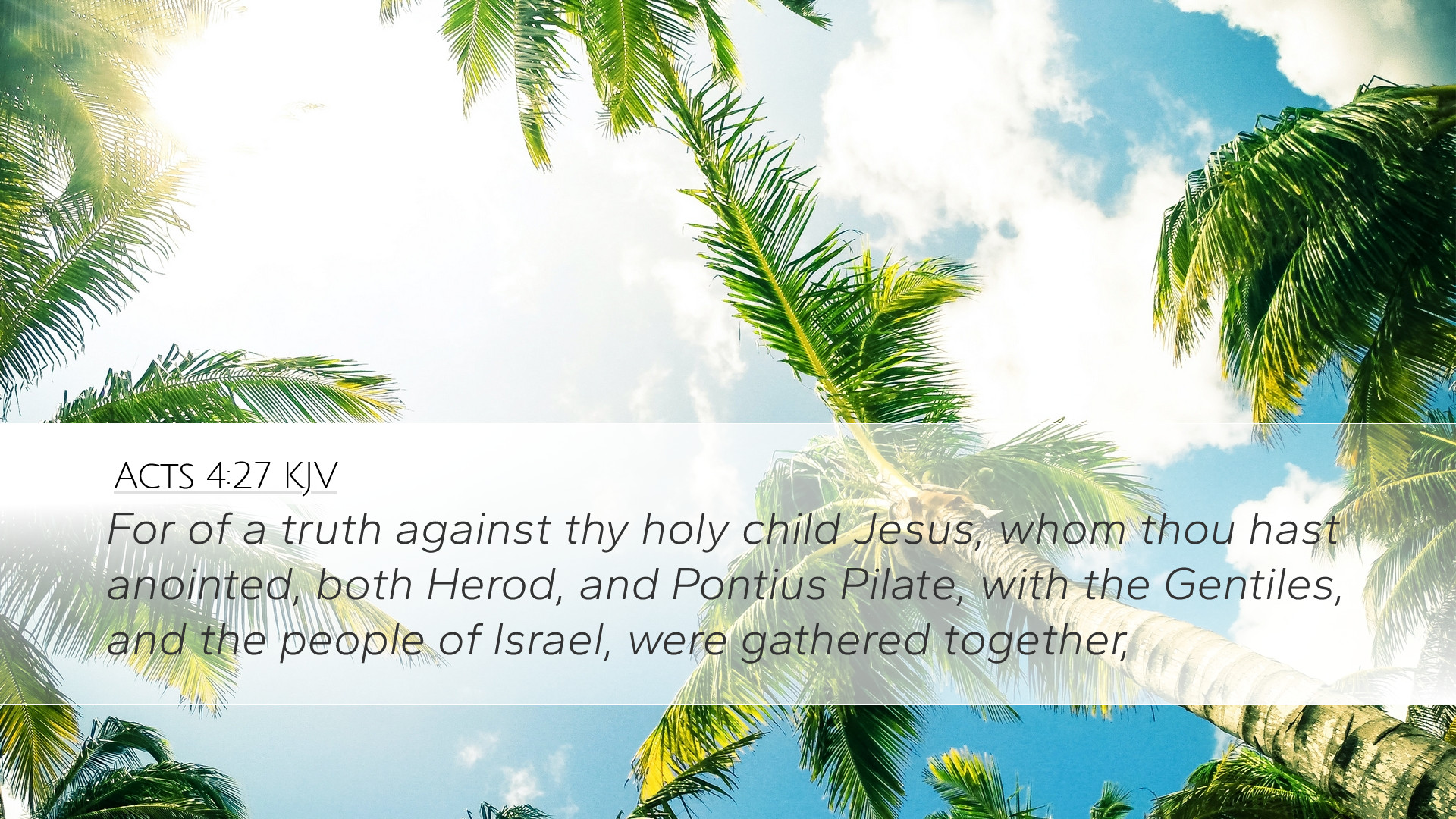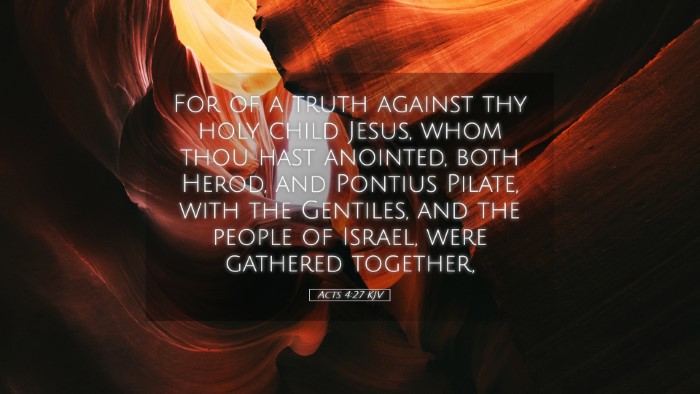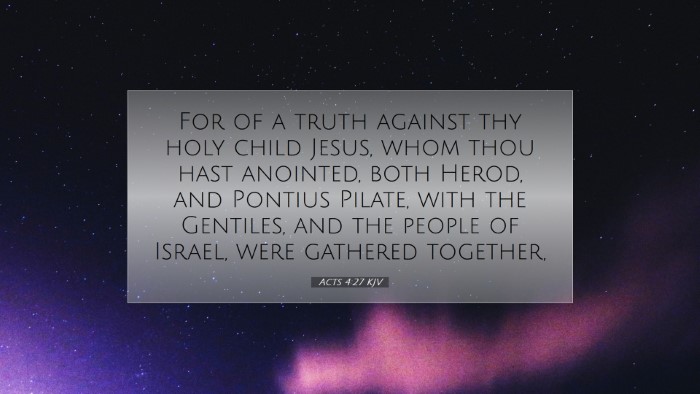Commentary on Acts 4:27
Verse: "For of a truth against thy holy child Jesus, whom thou hast anointed, both Herod and Pontius Pilate, with the Gentiles, and the people of Israel, were gathered together."
Introduction
This verse forms part of a prayer offered by the early Church after their release from imprisonment. It acknowledges the sovereign plan of God in the crucifixion of Jesus, highlighting the collusion of various groups who opposed Him. Insights from classic public domain commentaries such as those by Matthew Henry, Albert Barnes, and Adam Clarke provide a layered understanding of this powerful passage.
Historical Context
The mention of Herod and Pontius Pilate signifies the collaboration between religious and political authorities in the rejection of Jesus. This verse underscores the fulfillment of prophecy and the divine hand at work in history. Henry emphasizes the “conspiracy of evil” that was both historical and spiritual.
Theological Implications
- Sovereignty of God: The early Church recognizes God’s ultimate authority over human actions. Despite the opposition, God's plan remains intact. Clarke notes that the crucifixion was not an accident, but a part of divine purpose.
- The Anointed One: The text refers to Jesus as “thy holy child,” indicating His divine origin and mission. This description reaffirms the nature of Christ as both God’s Son and the Messiah. Barnes highlights the significance of the anointing, which symbolizes empowerment for His mission.
- Unity of Opposition: The verse identifies multiple groups—Jewish and Gentile—that united against Christ. This reflects a universal human tendency to oppose God’s plans. Matthew Henry elaborates on the alliances formed in opposition to God's work and outlines their futility.
Exegetical Insights
Examining the original Greek phrasing, the term “gathered together” suggests a strategic planning against a common adversary. This not only reflects the historical events surrounding the crucifixion but also serves as a theological statement about the nature of sin and rebellion against God. Clarke discusses the implications of this gathering as a fulfillment of prophetic scripture.
Reflections for Faith Communities
Pastors and church leaders can draw several lessons from this verse. It invites reflection on how communities may be complicit in opposition to God’s voice in their lives. The acknowledgment of Christ’s suffering should encourage believers to endure hardships with the knowledge that they participate in a greater narrative of redemption.
Practical Applications:
- Prayer and Unity: Just as the early Church prayed together, modern congregations are encouraged to gather in unity, seeking strength and guidance in the face of opposition.
- Awareness of God’s Plan: Believers should be reminded that God’s sovereignty prevails regardless of current circumstances. Understanding His eternal plan can give comfort and assurance.
- Identification with Christ: The suffering of Christ invites His followers to recognize their own suffering. This identification can lead to deeper faith and resilience.
Conclusion
Acts 4:27 brings forth critical theological truths about opposition, divine sovereignty, and the anointing of Christ. Insights from Matthew Henry, Albert Barnes, and Adam Clarke enhance our understanding of the gravity of this prayer offered by the early Church. For pastors, students, theologians, and scholars, this verse is a reminder of the complexities of faith in action amid adversity.
As we delve deeper into the scriptures, the overarching narrative of God's redemptive history is illuminated, encouraging believers to stand firm in faith, trusting in God’s providence and purpose in all circumstances.


